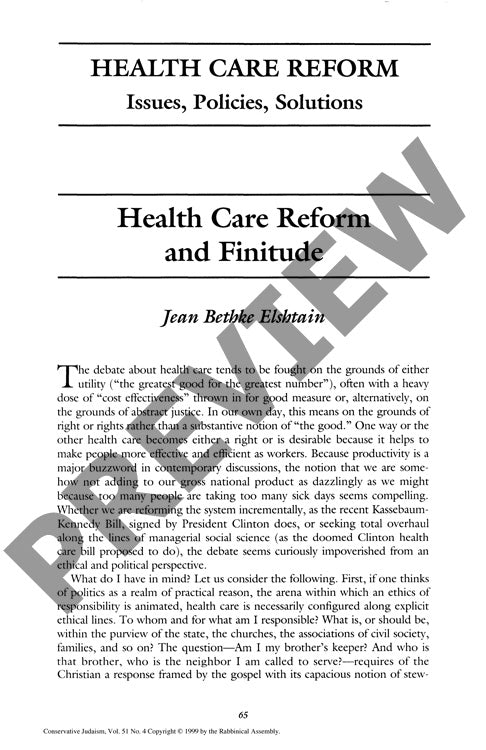Health Care Reform and Finitude
Couldn't load pickup availability
Modern health care debates suffer from a profound denial of human mortality and physical limits. Through analysis of policy proposals like the Clinton health care reform bill and contemporary wellness culture, Elshtain reveals how this rejection of finitude undermines effective health care reform. Drawing on Christian stewardship principles and Hannah Arendt's conception of political judgment, the analysis demonstrates that current utilitarian frameworks and rights-based arguments fail to confront the realities of embodied human existence. When society refuses to acknowledge bodily limits, resources become misallocated - flowing disproportionately toward cosmetic and mental health interventions while basic preventive care remains out of reach for many. A more nuanced framework of "realistic hope" would distinguish between remediable injustices and inherent human limitations, enabling health care policies focused on baseline dignity rather than utopian wellness goals. Recognition of mortality and bodily frailty, far from being defeatist, emerges as essential for developing just and sustainable approaches to health care reform.

More Information
-
Physical Description
-
Publication Information
Published 1999
ISBN
-
Publication Credits
Jean Elshtain

